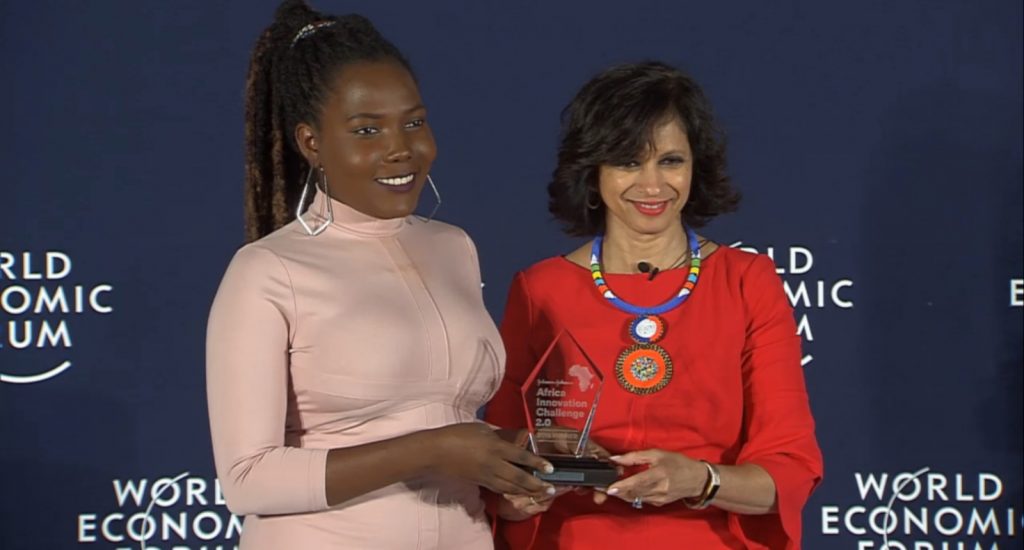The clock is ticking for Windows 10 users. With Microsoft’s official End of Support (EOS) deadline looming in October 2025, South Africans are being…
Here are the six winners of Johnson & Johnson’s innovation challenge

Healthcare giant Johnson & Johnson today announced the six winners of the Champions of Science Africa Innovation Challenge 2.0 at the 28th World Economic Forum on Africa in Cape Town.
The winning teams will get share of $300 000 prize pool, along with extensive mentoring and network building to support the expansion and sustainability of the companies and their programmes.
The company said in an earlier statement that the six winners offer bold entrepreneurial approaches to major healthcare priorities in African communities.
These it said include blood delivery, healthcare worker burnout, hearing loss, jaundice, malaria and ultrasound access.
Johnson & Johnson’s Africa Innovation Challenge 2.0 winners will share $300 000 in prize money
The winners hail from Botswana, Nigeria, Rwanda, Uganda. They are:
- Lifebank (Nigeria): Lifebank receives requests through a digital platform with the intent of delivering the necessary blood to hospitals in less than 45 minutes in a World Health Organisation (WHO) blood transfusion safety compliant cold chain.
- The Hope Initiative (Rwanda): The Hope Initiative builds upon research that has demonstrated the positive influence of intrinsic hope on health outcomes of healthcare workers and their patients. Using a validated metric, the initiative intends to measure hope among nurses and mothers to understand how hope intersects with healthcare worker burnout and perinatal health outcomes.
- Dreet (Botswana): Dreet is a mobile app that enables children in rural Africa to have their hearing tested in real time by a professional who may live thousands of miles away.
- Crib A’glow (Nigeria): Crib A’glow is a solar-powered, foldable photo-therapy crib provided to hospitals, health centres and parents, even in communities where access to quality healthcare and stable electricity is poor. Crib A’glow allows jaundiced babies to receive important photo-therapy to help them regain health.
- Uganics (Uganda): Uganics manufactures an organic, affordable soap that repels mosquitoes with intent to help prevent the spread of malaria. Uganics’ soap can be used for bathing, washing hands and washing clothes.
- mScan (Uganda): MScan’s device performs ultrasounds through the use of a portable probe and a tablet, laptop, or smartphone, allowing trained healthcare workers and midwives to be prepared for potential risk-factors during delivery.
The six were selected from nearly 900 applications from 39 countries. Johnson & Johnson said the winners represent “outstanding ingenuity and perseverance” as well as a pathway for scaling operations for long-term sustainability.
Johnson & Johnson MD, chief scientific officer and vice chair of the executive committee Paul Stoffels said Africa’s innovation ecosystem is “thriving” and that the ideas and energy of its entrepreneurs and innovators have the potential to create “transformational change” for people across the continent and the world.
“The six winners of the Africa Innovation Challenge 2.0 are addressing major healthcare challenges with novel technology and approaches.
“We look forward to collaborating with and investing in them as they work to create sustainable businesses and programs that offer strong benefits to patients, families, healthcare workers and communities in markets across Africa and beyond,” added Stoffels.
Johnson & Johnson vice-president of innovation global public health and science policy communication Seema Kumar (pictured above, right) said the six have made significant advancements with their businesses, including hiring more workers, accelerating production and securing important patents and trademarks.
These, she said, are all part of the ambitions and goals of the challenge.
“The new winners are equally impressive and talented, and we are confident that by linking the energy and ingenuity of these winners with the resources available through the Johnson & Johnson family of Companies, that they will also make a real and lasting impact in communities across Africa,” added Kumar.
Johnson & Johnson cross-sector teams will now begin working with each business and programme and will report their progress at the Next Einstein Forum’s global gathering event in 2020.
Read more: This Ugandan entrepreneur is out to prove that social enterprises can be profitable
Featured image, left to right: Uganics founder Joan Nalubega and Johnson & Johnson vice president innovation global public health and science policy communication Seema Kumar (Screenshot)

